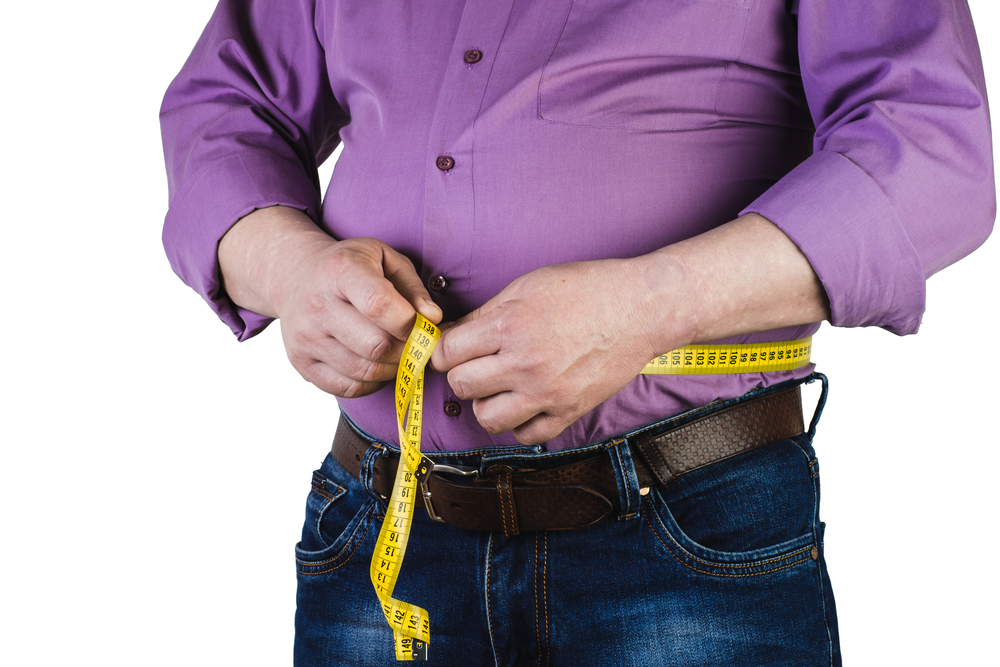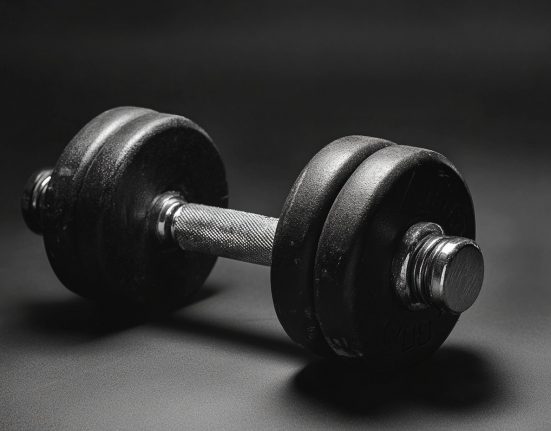Wondering “Why am I not losing weight”? These factors could be to blame.
Food journal? Check. Regular workouts? Yes, indeed. Enough fiber to keep me regular? You got it. I followed all the popular tips when I recently set a weight-loss goal, but as the weeks passed, I wasn’t making progress. And according to experts, many people experience the same frustrating scenario despite their best efforts.
Determined to finally make a breakthrough, I combed through research and grilled diet experts to pinpoint little-known reasons why my efforts haven’t resulted in weight loss. Here’s what I learned.
Why Am I Not Losing Weight?
Keep in mind that before beginning any weight-loss efforts, it’s important to check in with a medical professional who can help you figure out whether weight loss is a healthy goal for you. If you’ve set out to lose weight at their recommendation but aren’t seeing progress, these factors may be to blame.
1. I don’t drink enough water.
Most people know how important H2O is when you’re trying to lose weight. It helps to suppress appetite, so you’re less likely to overeat. But that’s not all: When you’re dehydrated, your kidneys can’t function properly, so the body turns to the liver for additional support. Because the liver is working so hard, more of the fat you consume is stored, rather than burned off.
Most surprising to me, though, is that if you’re upping your fiber intake but not also regularly filling up your water bottle, things tend to get a wee bit, er, backed up. “It’s important to add fiber gradually and increase water intake at the same time,” notes Anna-Lisa Finger, R.D., a certified personal trainer and dietitian. “Otherwise, instead of helping with digestion, fiber may actually lead to constipation.” Turns out, I often consume nearly double the recommended 25 grams of fiber daily. That could definitely play a part in why I am not losing weight.
Just how much water should I be drinking? “About one-half your body weight in ounces every day, especially if you’re exercising,” says Pamela Wartian Smith, M.D., the author of Why You Can’t Lose Weight. So the eight-cups-a-day rule applies only to sedentary people who weigh 128 pounds. If you’re one to consume an aggressive amount of fiber (guilty), an additional 8 to 16 ounces of water per day is a good idea, she adds. Just be warned: That amount of liquid — for me, a liter at each meal, minimum — requires serious effort and will turn you into a peeing machine.
2. I skimp on protein.
Several studies show that high-protein diets result in greater weight loss, at least initially. That’s because protein enhances the feeling of satiety and prevents you from losing muscle as you lose fat. You also have dietary thermogenesis, which is the energy you burn to process and use the food you eat, on your side. “Your body expends more energy to metabolize protein than carbs or fat,” says Cari Coulter, R.D., the program director for Wellspring Weight Loss Camp in Kenosha, WI. “So higher-protein diets make you burn slightly more calories.”
So how much protein do I need a day? “It depends on your weight, but most women should get 40 to 80 grams,” says Dr. Smith. To accomplish that, I have Greek yogurt (18 grams) or a couple of eggs (13 grams) for breakfast, and I eat a few ounces of lean poultry (25 grams) or fish (22 grams) or a heaping helping of black beans (15 grams) or lentils (18 grams) at lunch and dinner. When I need a snack, I reach for a handful of raw almonds (6 grams). As a result, I feel fuller, so I can stick to my daily calorie goal without feeling hungry or deprived.
3. I sit most of the day.
I log a solid hour of exercise almost every day. But outside of that, my time is mostly spent sitting in front of a computer. Could this be one of the reasons why I’m working out but not losing weight?
Yep. Much to my dismay, research finds that dedicated workouts simply can’t compensate for being sedentary the rest of the time. Sitting for just a few hours causes your body to stop making a fat-inhibiting enzyme called lipase, according to one University of Missouri-Columbia study. No wonder I am not losing weight at all.
Experts recommend setting a timer on your computer to remind you to move every hour, but what’s helped me is my Fitbit activity tracker. I wear the tracker 24/7, and I aim for 10,000 steps a day. To accomplish that, I heed some of those recommendations you’ve heard a million times: taking the stairs instead of the elevator, parking farther away. I even jog in place while brushing my teeth and watching TV. Move-more mission: accomplished.
4. My numbers are off.
I’ve always considered myself a math whiz, so I assumed I had the whole calories-in, calories-out formula down. Yet I was consistently working out but not losing weight.
Here’s how I determined how many calories I should eat a day: I got my basal metabolic rate (BMR, or the number of calories I need to maintain my weight) using an online calculator, and I entered “moderate” for my activity level, because I exercise regularly. Then I added whatever calories I burn during my workouts, using my heart-rate monitor to calculate a daily calorie intake for weight loss. The number seemed high, but I had used a calculator. It had to be right!
Not so fast, says Coulter. “The BMR calculator already factors in the calories you burn with your workouts, so you shouldn’t add them in again,” she explains. Math club membership revoked! All this time I had thought my daily needs were higher than they really were. Ideally, you’ll meet with a dietitian or doctor who can help you figure out your calorie needs — and whether calorie tracking is right for you — rather than relying on an online calculator.
5. I work out regularly.
I know, I know. How can an exercise routine make you gain? For starters, people tend to eat more when they work out, either because they feel they’ve “earned it” or because they’re overestimating how much they’ve burned — or both. “This is especially true in the early stages of a fitness program, when your body is getting used to the decrease in calories consumed and the increase in calories burned,” says Finger.
Working out can also make you retain water. “To ensure that you don’t get dehydrated, the plasma in your bloodstream will store an extra two to four pounds of water,” explains Michele S. Olson, Ph.D., a professor of exercise science at Auburn University at Montgomery in Alabama. “You’ll always carry that extra water unless you become inactive; it’s not fat or muscle, but simply hydration. It’s a good thing.” It’s also a good thing to keep chugging H2O, which can, counterintuitively, help minimize additional water retention. So I’ll take Olson’s advice and stay active, well-hydrated…and off the scale. And I’ll also remember that exercise is more about overall fitness and health than weight, and yes, gaining muscle can mean a shift up on the scale. (And that’s a good thing to feel stronger and burn more fat over time.)
6. I’m a stress case.
I’m a lot like the lab rats — and humans — who turn to food and gain weight when they’re under duress. “The stress hormone cortisol triggers the fight-or-flight response, which is an appetite stimulant,” says Dr. Smith. “In addition, it steps up the production of a certain brain chemical, neuropeptide Y, which increases cravings for carbohydrates.” So there’s actual science to support why you want to eat all the bread when you’re super stressed.
Even when I don’t give in to cravings, stress can stall my weight loss. “Too much cortisol slows metabolism,” says Dr. Smith. “Even worse, excessive stress causes fat to be stored in the abdominal area, where weight is harder to lose.”
Luckily, a lot of the things I’m doing to lose weight should also ease my angst. “Exercise reduces stress,” notes Dr. Smith. “Balanced, nutritious meals can repair the damage that stress does to the body, and a social support network also helps.” So my team of Fitbit-wearing friends and fam is helping me lose weight in more ways than one.
How Get Weight-Loss Results
So does exercise help you lose weight? It’s been three months since I embarked on this adventure, and I’ve lost 12 pounds — a solid pound a week. I’ve increased my water and protein intake, I move more throughout the day, and I’m trying to stress less. But one of the best things I’ve done has been — go figure — not weighing myself, at least for a little while, as Olson suggested.
I was tempted in the beginning, but I stuck to my scale embargo for a month. Now I weigh in weekly, but the fluctuations don’t bother me. After all, “body weight can fluctuate by up to five pounds on any given day, so the amount you shed can easily get lost,” says Dr. Smith.
At the end of the day, I know I’m making progress toward my health goals, no matter what the scale says. Plus, I’ve found other ways to measure my journey (shout-out to the non-scale victories!). I feel enlightened — in more ways than one. For example, I can try on the same pair of jeans and shirt every six to eight weeks to see how the fit changes. Or, I tune into how my body feels — do I have more energy? Am I sleeping better, or feeling less stressed? Finally, I might consider keeping a workout log and track how much weight I can lift and how many miles I can walk or run.
Regardless of whether I end up losing any weight, changing my habits has made me feel healthier and more confident in myself — and that’s something no scale can take away.









